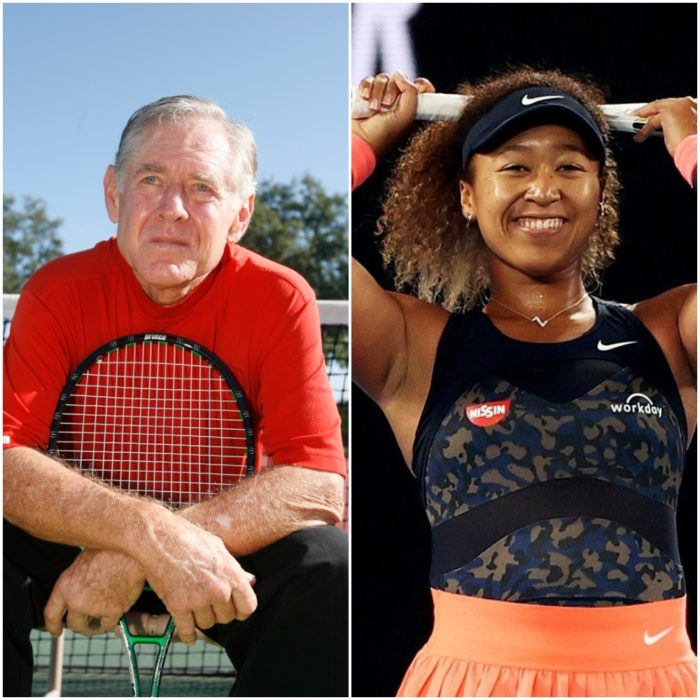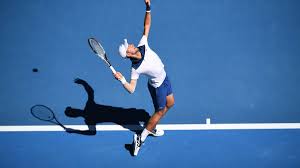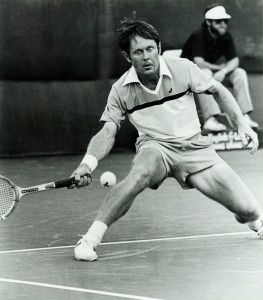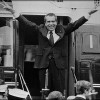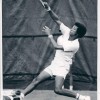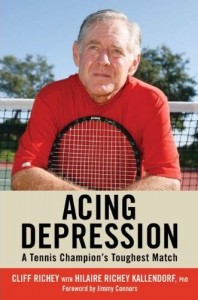Following Naomi Osaka’s withdrawal from Roland Garros citing depression and mental health, former U.S. and French Open semifinalist Cliff Richey drafted the following public letter to Osaka to help guide her (and others) through depression, the disease that has afflicted Richey most of his life. Richey documents his life and success over depression in his book “Acing Depression: A Tennis Champion’s Toughest Match” (for sale and download here: https://www.amazon.com/dp/0942257669/ref=cm_sw_r_tw_dp_468K44N1T5XF4PKNWJ4Z) He followed up with another book called “Your Playbook For Beating Depression” written with Professor Mary Garrison (for sale and download here: https://www.amazon.com/dp/1937559688/ref=cm_sw_r_tw_dp_PXATFXMMD5CCGGCJVPP2) to provide sufferers with an immediate reading guide to help them through the dark times of the disease. Cliff is proud of his tennis career, but is perhaps even more proud of his efforts as a mental health advocate, where he has no doubt saved many lives.
Dear Naomi,
You don’t know me, but I am part of our “club.” Having played the world tennis tour for 15 years, in the 1960s and 1970s, I won the first ever world point championship (the precursor to the ATP rankings) in 1970 and I was a member of two championship winning U.S. Davis Cup teams. I also won 45 tour titles. I had a long career and even played 10 more years on the senior tour. I have also had a long career with clinical depression. At one point in my life I was almost non-functional for three years. I had trophies on the wall, enough money to do what I wanted and a beautiful family. But I was sick and miserable. My disease was actually diagnosed after many years by my dermatologist. I had a year of counseling, and I read everything I could find to educate myself on what my opponent does and how it attacks. Clinical depression is a real medical disease. A lot of people don’t know it is, but it is. Once I got counseling, educated myself on the disease, I also was prescribed an antidepressant medication. I’m on 200 mg of Zoloft and have been for 24 years. For me it’s at least 50 percent of my recovery. Knowing about the disease and changing my life a bit is the other 50 percent. There is hope! There is recovery. Let me say that again because depression sufferers need to hear it over and over again. There is hope. There is recovery.
So many successful people have clinical depression. It’s actually sometimes referred to as the “successful man’s disease.” People who are creative, and go getters and smart can also have clinical depression. It’s one more hurdle we have to jump over. You are a great champion, Naomi. Your record proves it. Right at this moment I would ask that you do one thing—don’t give up! Don’t make any fast moves.
So let me put it into a few bullet points.
- Antidepressant medication is not a last resort or a “cover the problem” pill. It works like insulin for a diabetic. It can correct a chemical imbalance in the brain. And you don’t build up tolerance with it. The worst thing you can do is use alcohol, cocaine or any of the street drugs. All of those are depressants that makes depression worse.
- Counseling is a strategy session for how you can change a few things in your life and have a smoother ride. Reading and self education can be equally as important. As I said, you’ve got to know your opponent.
My recovery has been a good one. I have been productive and lived life in a healthier way. Clinical depression has been one of my life’s biggest hills to climb. Clinical depression is not just a down mood. Just like a diabetic coma is not just being light headed! It’s time our society gets to know what it is and how to treat it. I am a mental health advocate and published two books to help those who suffer. You can do it Naomi! I know you can. Go get’em!
Sincerely,
Cliff Richey
